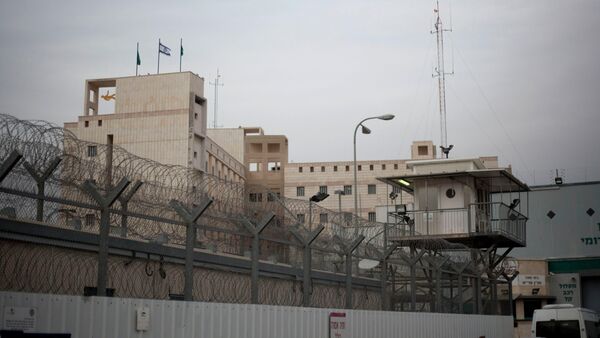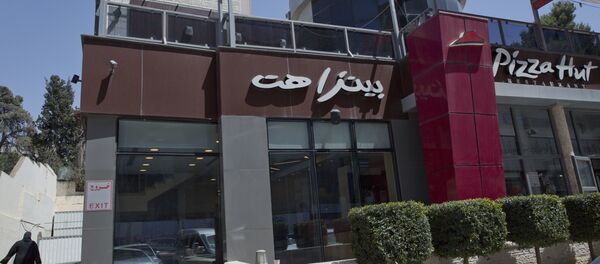According to Qaraqe, there were "signs" that Israel is about to start negotiations with the imprisoned hunger strikers shortly. He said that Israeli Prison Services have called for a meeting with the leaders of the strike, but did not provide additional details.
The Israel Prisons Service also did not comment on the claim, but Israeli officials have long rejected the idea of negotiating the strikers' terms of imprisonment.
"Negotiations are out of the question," said Public Security Minister Gilad Erdan earlier in April, adding that the IPS would not conduct negotiations with the prisoners in accordance with prison policy.
Up to one thousand Palestinian prisoners are on the hunger strike for 25 days already, starting with April 17. The strikers have been ingesting only water and salt.
"We are entering an extremely critical period" for the hunger strikers, says Qadura Fares, head of the Palestinian Prisoners Club.
"A large number of prisoners can no longer move from their beds or take care of their basic needs."
Israel maintains that prison conditions meet all international standards.
The hunger strike is believed to be led by Marwan Barghouti, one of the most prominent figures of the second intifada, convicted to five lifetime sentences for five cases of murder. Despite that, Barghouti remained politically active behind the bars. According to Erdan, the strike is a tool being used by Barghouti to advance his own political ambitions.
The International Committee of the Red Cross visited Barghouti on Thursday for the first time the hunger strike began. The international body refused to disclose details on Barghouti's health "in accordance with the principles of medical confidentiality."




